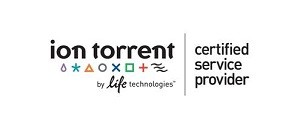About 25% of all people over 55 years have a family history of dementia. For most, family history is due to a genetically complex disease, in which several genetic variants, with each one having a relatively small effect, interact to increase the risk of dementia. The dementia risk for these families is approximately 20%, compared with 10% in the general population. However, a small percentage of families have a family history of early onset dementia, which is often due to an inherited genetic disorder caused by a mutation in one of the many known dementia genes.
The diseases associated with hereditary dementias include early onset forms of Alzheimer’s disease, Frontotemporal Dementias (FTD), various types of Amyotrophic Lateral Sclerosis (ALS or Lou Gehrig disease), Parkinson’s disease, etc. The mode of inheritance of these diseases varies and may be autosomal recessive (parents healthy carriers), autosomal dominant (usually with an affected parent), or X-linked (only affected males).
Genetic testing in individuals and families with hereditary dementias is not a simple task, mainly because of the relatively large number of genes involved for each type of dementia and the overlapping clinical signs, resulting in an inability to identify the underlying genetic cause in some cases.
In order to facilitate the genetic diagnosis of hereditary dementia in patients and families, InterGenetics has developed and offers an NGS panel for the genomic analysis of 48 genes, associated with almost all known genetic diseases presenting with hereditary dementia.
| ALS2 | ANG | APP | ATP13A2 | CHCHD2 | CHMP2B | |||
| DCTN1 | DNAJC6 | EIF4G1 | ERBB4 | FBXO7 | FIG4 | FUS | GIGYF2 | GRN |
| HNRNPA1 | HTRA2 | LRRK2 | MAPT | MATR3 | NEFH | OPTN | PARK2 | PARK7 |
| PFN1 | PINK1 | PLA2G6 | PRNP | PSEN1 | PSEN2 | SETX | SIGMAR1 | |
| SLC6A3 | SNCA | SOD1 | SPG20 | SYNJ1 | TARDBP | TREM2 | UBQLN2 | VAPB |
| VCP | TAF1 | VPS13C | VPS35 | VPS54 |
We perform DNA sequence analysis, via Next Generation Sequencing (NGS) on a Genome Analyzer – Ion Proton platform, of all exons and intron-exon junctions/splice sites of the 48 genes, allowing us to detect >98% of all pathogenic mutations of the genes through the use of specially developed bioinformatics tools.
Where possible and/or necessary, we carry out additional MLPA analysis in order to detect deletions/duplications of the genes (please consult the final test report).
The test is highly sensitive and complex, so it is necessary that the results are assessed by a specialized team of clinical and molecular geneticists, in order to ensure safe and reliable testing.
Proper clinical genetic assessment and genetic counseling, both before and after testing, is essential in order to determine the optimum testing strategy and also to communicate properly the concepts of pathological and normal.

